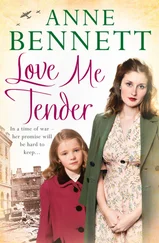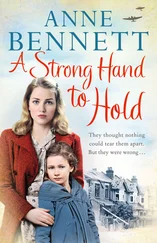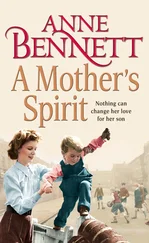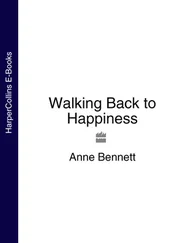To Have and to Hold
ANNE BENNETT
To my eldest grandchild and only granddaughter Briony Wilkes with all my love.
Cover Page
Title Page To Have and to Hold ANNE BENNETT
Dedication To my eldest grandchild and only granddaughter Briony Wilkes with all my love.
Chapter One
Chapter Two
Chapter Three
Chapter Four
Chapter Five
Chapter Six
Chapter Seven
Chapter Eight
Chapter Nine
Chapter Ten
Chapter Eleven
Chapter Twelve
Chapter Thirteen
Chapter Fourteen
Chapter Fifteen
Chapter Sixteen
Chapter Seventeen
Chapter Eighteen
Chapter Nineteen
Chapter Twenty
Chapter Twenty-One
Chapter Twenty-Two
Chapter Twenty-Three
Chapter Twenty-Four
Chapter Twenty-Five
Chapter Twenty-Six
Chapter Twenty-Seven
Chapter Twenty-Eight
Chapter Twenty-Nine
Chapter Thirty
Acknowledgements
About The Author
Other Books By
Copyright
About the Publisher
Carmel was positively mesmerised by the bustling docks at Belfast. She could barely wait to board the mail boat anchored in the dock, fastened tightly to the solid concrete bollards with ropes as thick as a man’s forearm. Yet still the boat moved ever so slightly and Carmel tingled all over as she wondered how it would feel to be aboard that vessel and moving out into the open sea.
Just a little later she stood at the rails and watched the shores of Ireland disappear. She felt not homesickness, but relief, and she gave a defiant toss of her head that set her auburn curls dancing, while the excitement shone in her flashing dark brown eyes as the boat ploughed its way through the waves. Many were sick as the boat listed from side to side, including the nursing nuns that she was travelling with, but Carmel discovered her sea legs and explored the mail boat from end to end.
She was quite disappointed to leave the boat in Liverpool, yet as she and the nuns boarded the train for New Street Station in Birmingham, her insides turned somersaults with excitement—and a little trepidation. From the station she would be taken to the nurses’ home attached to Birmingham’s General Hospital where she would live for four years. She could barely believe that she was really here at last, and just as far from her family as she had wanted to be. She had known she wouldn’t feel free of her father’s dominance until she reached the shores of Britain. From now on, she decided, her life was to be her own. She would start the same as all the other probationers and no one need know about her earlier life at all. She would try to scrub it from her mind and forget it had ever happened.
But as the train rattled over the rails, taking her to her new life, she allowed herself to remember with great relief all she was leaving behind, like the abject terror her brutal father had always induced in her till she didn’t know that there was any other way to feel, and regarded herself as worthless and of no account.
She would never forget her horrifying schooldays, especially that awful day when she was about seven, when Breda Mulligan, the post mistress’s daughter, had pushed her face close to Carmel’s and said, ‘My mammy said I am not to play with you because you are dirty, smell bad and have nits in your hair.’
It had all been true. Carmel remembered then how the other children had formed a circle around her and chanted tunelessly in the school yard, ‘Carmel Duffy has nits in her hair, nits in her hair, nits in her hair.’ Time and again she had tried to break out of the circle, but the children held firm and pushed her back in. Even now, years later, she recalled crying with helplessness and fear. As the tears had trickled down her dirty face, they mingled with the snot from her nose that she wiped away with the sleeve of her ragged cardigan. ‘Filthy, snotty Duffy,’ Breda had cried with disgust, and they had all taken up the call. Eventually, one of the teachers, Mrs Mackay, had saved Carmel, scolded and scuppered the children and took Carmel inside to clean her up, but the damage had been done.
After school, the children had been waiting for her, but Mrs Mackay had anticipated that and she left her down at the house. House, huh, more like a shack—and Carmel had been mortified at her teacher glimpsing the hovel she lived in.
Once, Carmel imagined, the small cottage walls had been whitewashed and the thatch thick, but long ago the neglected thatch had had to be removed and lay in a sodden, rotting heap beside the house. The only roof they had then was of corrugated iron, and the sides of the house were reduced to bare stone. The shabby and ill-fitting door was hanging off its hinges, one of the grimy windows covered with cardboard after her father, in a rage, had put his fist through it, and outside was a sea of mud. Carmel wanted to curl up and die with shame.
After Mrs Mackay had told her mother why she had brought Carmel home, her mother, Eve, had waited only until Dennis left the house before boiling up a large pan of water on the fire. She scrubbed Carmel from head to foot, kneading at her hair until her scalp tingled, and then washed her clothes in the water and dried them before the fire.
It made no difference: it was too much fun hounding someone for any of the bullies to want to stop, and if they were inclined to, Breda would invent some other taunt so that Carmel began to dread going to school. In the end, Mrs Mackay suddenly found she had many jobs to do inside at lunchtime with which she needed Carmel’s help, and when she found the child had arrived with no dinner, which was usually the case, she would always say she couldn’t finish her own and share it with her.
Small wonder Carmel had loved her with a passion and worked like a Trojan to please her, thereby achieving more than anyone expected. She never had one friend, however, because of the reputation of her drunken, violent father, Dennis. The townspeople had the whole family tarred with the same brush. Dennis had an aversion to work of any kind, so that the family were forced to live on charity and were dressed in shabby cast-offs. Many in Letterkenny would shake their heads over the way the children had been brought up and mutter to themselves that, with such a start, what sort of a turnout would the children make at all, at all?
Carmel was the one who had to run the gauntlet every week, doing the shopping for her mother, paying for it with the vouchers from St Vincent de Paul, which were given to the poor of the parish, shaming her further. She would see girls of her own age wandering arm in arm about the town and she had ached to be accepted like that, but she knew that would never happen. She didn’t even look like them, with their clean, respectable clothes, socks and shoes.
However, she refused to lower her head to those disparaging people. It was hard to retain dignity when your dirty feet were bare and your clothes were on their last legs, but Carmel would raise her chin defiantly and hold their sneering gaze with eyes that flashed fire
‘Do you see the set of that one with the insolent look on her and her head held high, as if indeed she has anything at all to be proud of?’ she heard one women remark, as she passed her in the street.
‘Aye. I’d say they would have trouble with that one,’ her companion replied.
‘And not that one alone, I’m thinking. There’s a whole tribe of them back at that shack of a place.’
‘Aye, and what else can you expect after the rearing they’ve had?’
One by one, the townsfolk waited for the Duffy children to go to the bad. But Carmel had a champion in her teacher, Mrs Mackay. Yet, they both knew that there was neither the money nor the will in the Duffy household to keep a child at school a minute longer than was necessary, however intelligent she was.
Читать дальше












